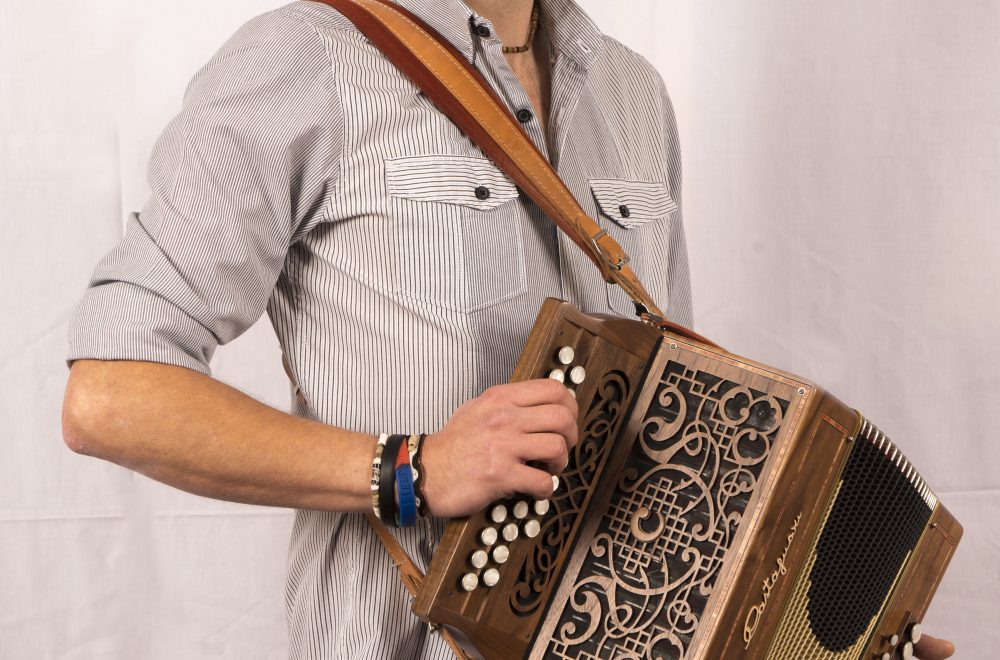
Our Creative Engagement Officer Kate Halsall has been asking Saul Rose, one of the artists from our forthcoming season,
KH: Who or what inspired you in your early music making and who were the most important influences on your musical life?
SR: I was born into folk music so it’s always been there, the melodeon spoke to me when I was 10 and has done ever since! The first instance was hearing one of my heroes play for dancing, the legendary John Kirkpatrick. His playing has started and influenced so many players and his career is a marvel.
Likewise Andy Cutting who grew up on the same scene as me – morris dancing – and has gone on to become perhaps the finest player.
KH: What have been the greatest challenges for you, during this year of lockdown, for your music making?
SR: The lack of real time collaboration! Zoom is all very well but it’s not the same. Nor is remote recording, it works but the spark isn’t there. That and a severe drop in income…!
KH: How do you write music, what’s your process – or, given the unusual circumstances, what’s your current process?
SR: I don’t write much original music, rather I draw on the rich tradition that Britain and in particular, England has to offer. So I arrange musical accompaniment for traditional songs using my experience of chord theory, hopefully interestingly! There hasn’t been much opportunity these last 10 months!
KH: What do you think are important ideas or core concepts, for aspiring young musicians?
SR: It’s really ok to imitate those who inspire you, great technique can be gained by reproducing music that grabs your attention. I did exactly that and drew from a broad selection of not only players of my own instrument but great players within the genre. A good tune is a good tune no matter what it’s played on!
Oh, and practice practice practice. It’s a lot of hours but it is worth it!
KH: Your music is folk but not necessarily from just traditional sources. How do you go about selecting material for new projects?
SR: The advantage of adapting traditional material is that there’s a vast resource to draw from both in book form and more recently online. I look for interesting narratives, stories that I feel need to be told again. I’ve learned not to worry if the melody doesn’t appeal or some of the language is archaic, because it’s written down in its original form, music cannot be hurt by changing it as long as one cites ones sources. I do sing some contemporary songs but they’ve usually been written within the genre of folk.
KH: Your music is folk but not necessarily from just traditional sources. How do you go about selecting material for new projects?
SR: The advantage of adapting traditional material is that there’s a vast resource to draw from both in book form and more recently online. I look for interesting narratives, stories that I feel need to be told again. I’ve learned not to worry if the melody doesn’t appeal or some of the language is archaic, because it’s written down in its original form, music cannot be hurt by changing it as long as one cites ones sources. I do sing some contemporary songs but they’ve usually been written within the genre of folk.
KH: Tell us about what you’re performing (we hope!) for your rural touring performances with Highlights in April this year?
SR: I’ll be bringing a mix of songs and tunes, some from the show Warhorse which come with their own anecdotes! Some of my own tunes and traditional songs that I’ve arranged as well as stories from 25+ years on the road.


